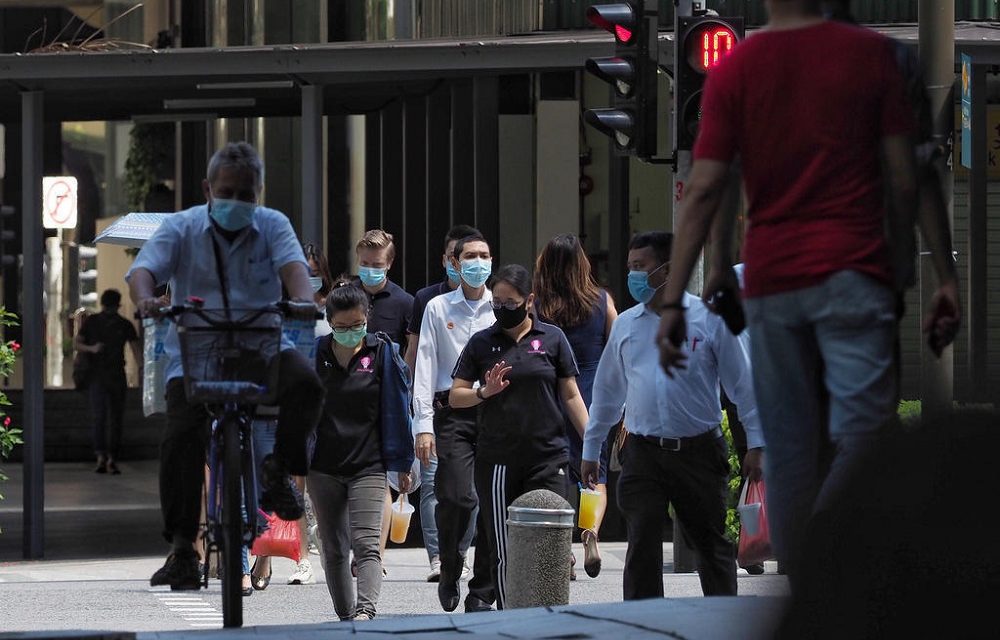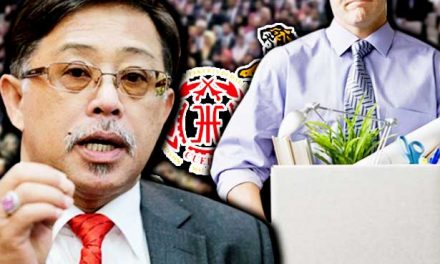SINGAPORE | Amid warnings of rising lay-offs as the economic fallout from Covid-19 continues, the National Trades Union Congress (NTUC) has called on firms to protect the “Singaporean core” and preserve jobs as much as possible by allowing workers to switch to part-time contracts, for example.
In a statement yesterday, NTUC proposed a fair retrenchment framework (FRF) to guide companies on responsible retrenchment practices, which would complement the existing tripartite advisory and guidelines on managing excess manpower.
The FRF has three guiding principles — protecting the Singaporean core, preserving jobs and providing job support.
The first principle calls for companies to safeguard the Singaporean core by protecting Singaporean jobs or redeploying the workers involved, while giving due consideration to foreign workers.
Companies should have selection criteria for managing manpower based on “business needs and reasonableness”, and ensure their workplace is balanced by keeping older employees and evaluating them on an equal basis, said NTUC.
It also suggests that businesses may consider keeping foreigners in their workforce if they have critical skills though it added that companies should ensure that these skills are transferred to Singaporeans in the longer term.
In the second principle of the FRF, the union body reiterated that retrenchment should be the last resort for companies.
“Before considering retrenchments, as an early intervention, companies should work with unions and workers to find ways to preserve as many jobs as possible,” it said.
The FRF proposes that companies could implement measures such as collective pay reductions, providing secondment opportunities for workers and placing them on shorter work weeks, no pay leave or furlough.
Other measures that companies can adopt include allowing workers to switch to part-time contracts, considering job-share arrangements for workers and tapping on Singapore government assistance schemes to mitigate manpower costs.
In the third principle of its FTF, the union body said that if retrenchments are inevitable, companies should provide fair retrenchment packages and processes so that workers are “treated fairly and with dignity, even as they are asked to leave the companies”.
It calls for companies to join the NTUC job security council, set up earlier this year, to provide job support to workers that are affected by retrenchments, help them seek new employment and train them for skills that are required for new jobs.
In a Facebook post, Manpower Minister Josephine Teo called on companies to “keep a strong Singaporean core and let our people support you through this challenging time”.
“While being fair to all affected workers, keep in mind how the local workers have contributed to your presence and past successes in Singapore,” said Mrs Teo.
“As much as Singapore welcomes you to make this the best home for your business, we need you to make your company the best home for our people.”
In a separate Facebook post, Trade and Industry Minister Chan Chun Sing reiterated that while the Singapore government has put in place initiatives such as the Jobs Support Scheme, retrenchments are expected to rise in the coming months and “Singaporeans are rightfully worried about what this means for them and their families”.
“We have been closely monitoring the economy to identify the sectors that are most vulnerable to retrenchments and… are working closely with (the Ministry of Manpower and NTUC) to retain as many workers as possible,” said Mr Chan.
Addressing businesses here, he added: “The proposed fair retrenchment framework by NTUC will be able to guide companies on responsible retrenchment practices… The Ministry of Trade and Industry and our economic agencies will continue to work with you through the short-term challenges and prepare you for the eventual recovery.”
Amid the economic slump, there has been a spate of lay-offs recently. In June, technology firm Grab laid off 360 of its employees across the region as the Covid-19 pandemic hammered its business, while KidZania Singapore also laid off all 103 staff as it shut its doors due to the lack of ticket sales during the pandemic.
Based on the latest available data, Singapore’s resident unemployment rate stood at 3.3 per cent and its overall unemployment rate was 2.4 per cent as of March.









